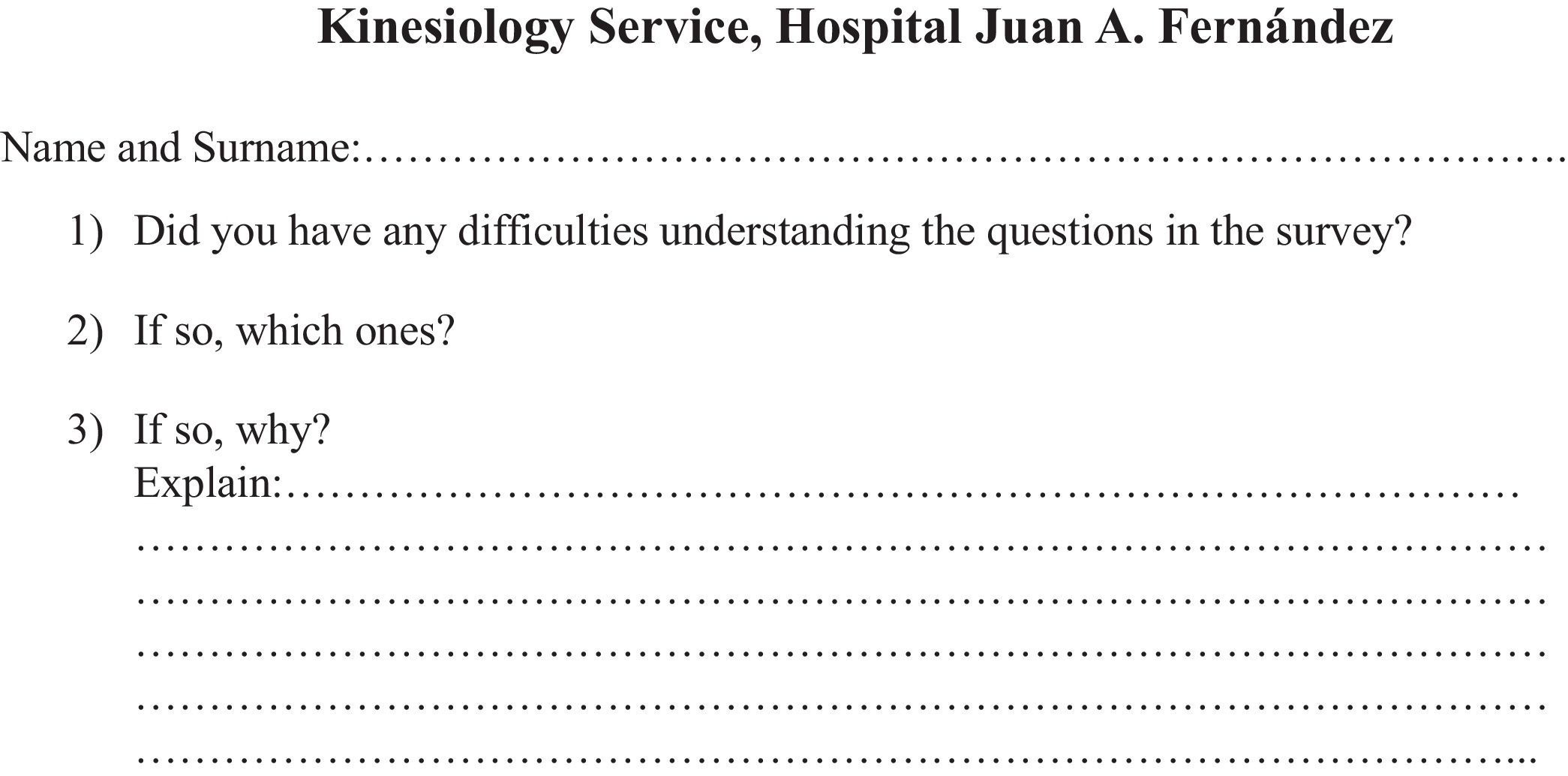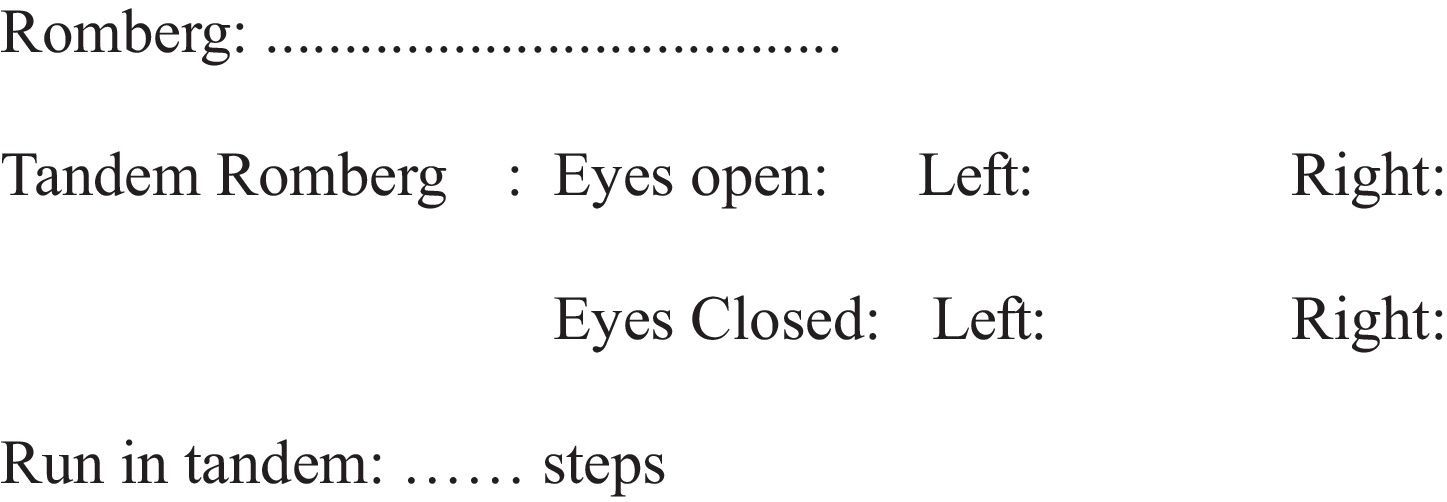The Dizziness Handicap Inventory is a useful tool for quantifying self-perceived handicap in patients with vertigo, dizziness or unsteadiness and its impact on daily living activities. The Dizziness Handicap Inventory identifies functional, physical and emotional disorders related to balance disturbance.
Our objective was to cross-culturally adapt the Peninsular Spanish version of the Dizziness Handicap Inventory for use in Argentina and validate the adapted Argentinian version.
MethodsWe included both healthy subjects and patients with vertigo, dizziness or unsteadiness, aged 18–85 years, native Spanish-speaking Argentinians.
We introduced linguistic and cultural modifications to the Peninsular Spanish version to obtain the Argentinian one. This version was given twice to 108 patients, 24–72h apart. Internal consistency, test–retest reliability and construct validity were assessed using a visual analogue scale, the Romberg test, the tandem Romberg test and the tandem gait test.
ResultsWe found high internal consistency (α=0.87) and very high test–retest reliability for the total Dizziness Handicap Inventory score (intraclass correlation coefficient: 0.98) and its subscales. The total Dizziness Handicap Inventory and the functional subscale were found to correlate significantly with the Romberg and tandem Romberg tests. The emotional subscale showed a significant correlation with the Romberg test and the eyes-open tandem Romberg test (P<.05).
ConclusionsThe Argentinian version of the Dizziness Handicap Inventory proved to be a reliable and valid tool to quantify self-perceived handicap resulting from vertigo, dizziness or unsteadiness.
El Dizziness Handicap Inventory es una herramienta útil para cuantificar la autopercepción de la discapacidad en pacientes con vértigo, mareo o inestabilidad y su impacto en actividades de la vida diaria. El Dizziness Handicap Inventory identifica problemas de orden funcional, físico y emocional relacionados con trastornos del equilibrio.
Nuestro objetivo es realizar la adaptación cultural y validación del Dizziness Handicap Inventory al castellano argentino a partir de la versión española.
MétodosSe incluyeron personas sanas y pacientes con vértigo, mareo o inestabilidad, de 18 a 85 años, argentinos nativos capaces de comprender castellano.
Sobre la versión española se realizaron modificaciones lingüísticas y culturales para obtener la versión argentina. Esta versión se administró a un grupo de 108 pacientes, 2 veces, en un lapso de 24 a 72h.
Se evaluó consistencia interna, confiabilidad test–retest y validez de constructo a través de: Escala Visual Análoga, Romberg, Romberg en tándem y marcha en tándem.
ResultadosSe encontró una alta consistencia interna (α=0,87), y muy alta confiabilidad test-retest del Dizziness Handicap Inventory total (coeficiente de correlación intraclase: 0,98) y sus subescalas. Se encontraron correlaciones significativas entre Romberg y el Romberg en tándem con el Dizziness Handicap Inventory total y la subescala funcional. La subescala emocional mostró una correlación significativa cuando se comparó con Romberg y Romberg en tándem ojos abiertos (p<0,05).
ConclusionesLa versión argentina del Dizziness Handicap Inventory mostró ser una herramienta confiable y válida para cuantificar la autopercepción de la discapacidad debida a vértigo, mareo o inestabilidad.















